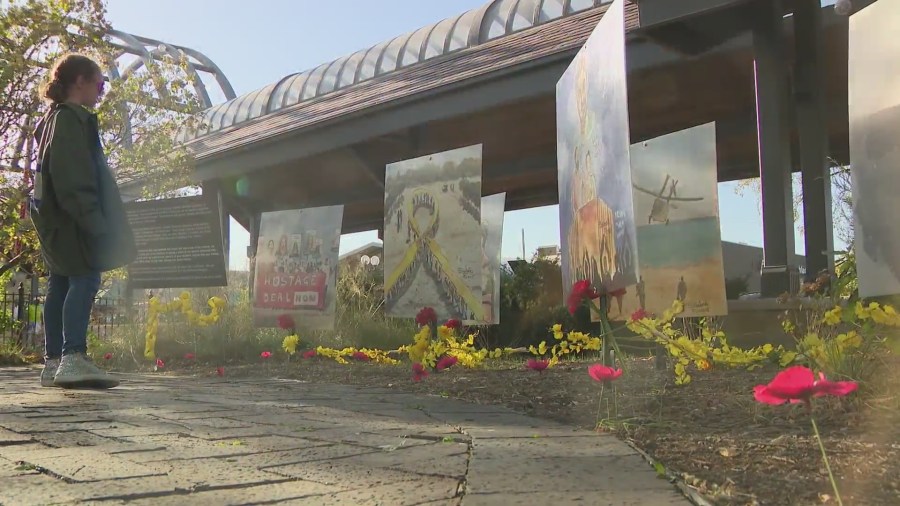On the one-year anniversary of the October 7 attacks by Hamas on Israel, events commemorating the tragic day took place across Chicagoland, including a poignant memorial service in Highland Park. The attacks, which shocked the world, resulted in the deaths of around 1,200 people and left approximately 250 individuals taken hostage. As the anniversary unfolded, the lasting implications of these events became apparent, with current estimations suggesting that around 100 hostages remain in captivity, and many are feared to have been killed since the initial assault. This period of remembrance was not only about honoring the victims but also about acknowledging the ongoing crisis stemming from these attacks.
The memorial service in Highland Park was organized by Shamash, a coalition of North Shore residents who have been actively involved in advocating for the release of hostages throughout the past year. In Port Clinton Square, attendees gathered to reflect on the loss and grief experienced over the last year, marking the occasion with a temporary memorial designed to pay tribute to the victims. This gathering underscored the communal effort to hold space for mourning and solidarity among those impacted by the violence.
In stark contrast to the memorial in Highland Park, a Pro-Palestinian march was held just a day earlier in downtown Chicago, which illustrated the complex dynamics surrounding the conflict. Thousands took to the streets in the Gold Coast neighborhood, advocating for an end to the violence and urging a reevaluation of U.S. aid to Israel. This juxtaposition of events highlighted the deep divisions in public opinion regarding the conflict and underscored the passionate activism occurring within the city and beyond.
The Pro-Palestinian protest in Chicago was part of a larger global movement, with similar demonstrations taking place in major cities around the world. Notably, a massive turnout in London saw over 40,000 demonstrators rallying for their cause. These rallies reflect a growing solidarity and activism among those advocating for Palestinian rights and an end to violence in the region. The contrast between these demonstrations and the memorial gatherings draws attention to the widespread impact of the conflict on global political sentiments.
As groups like Shamash continue to organize events and advocate for peace and justice, the commemorative activities and protests illustrate the ongoing tension and the complexity of narratives surrounding the Israeli-Palestinian conflict. This year has seen a surge in activism as communities grapple with the humanitarian implications, the call for accountability, and the hope for a peaceful resolution. These gatherings serve not only as memorials but also as platforms for dialogue and awareness regarding the multifaceted realities of the conflict.
The events on the anniversary of the Hamas attacks encapsulate a broader discourse on violence and humanitarian crisis in the Middle East. They remind the public of the urgent need for compassion, understanding, and action in the face of ongoing suffering. As different factions express their grief and demands through organized events, the challenge remains to navigate these complex emotions and perspectives towards a more peaceful future.

